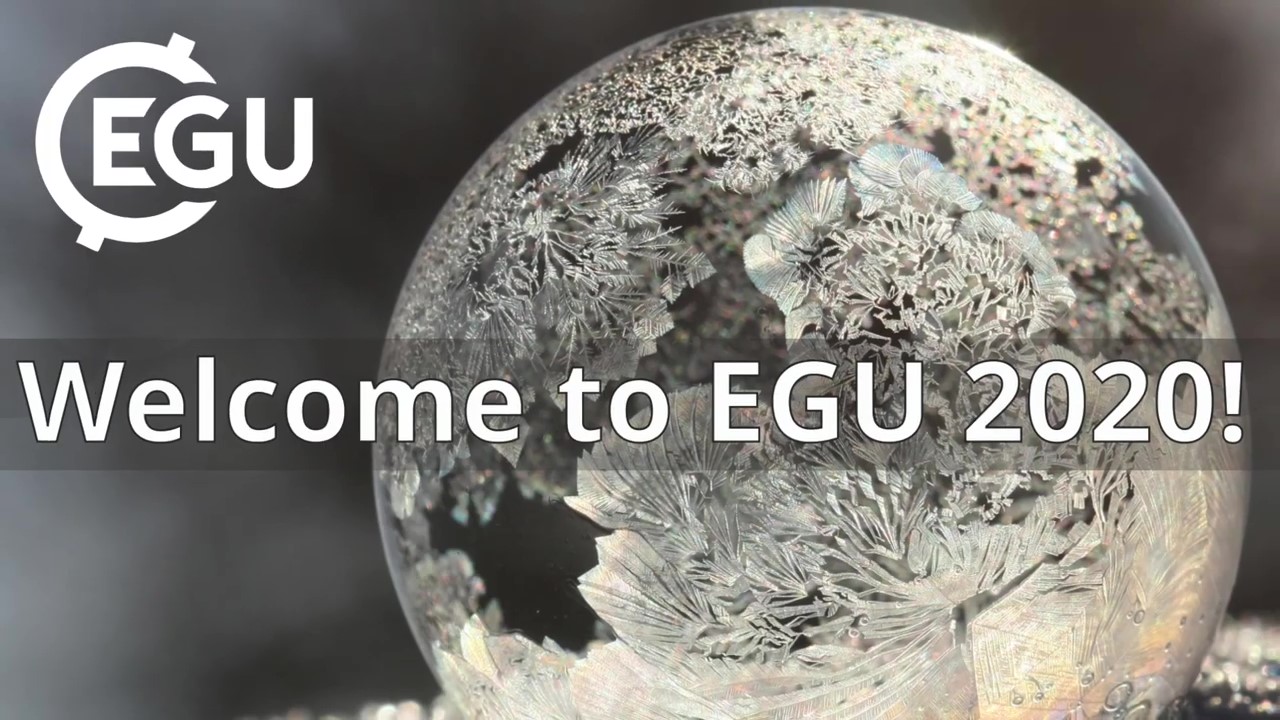From 4-8 May 2020 scientists of the Smart Urban Nature Laboratory (RUDN University) took part in the respected EGU General Assembly 2020 in the online format. Instead of the annual life General Assembly in Vienna, the European Geosciences Union (EGU) hosted EGU2020: Sharing Geoscience Online. The largest virtual geoscience meeting is a pilot project that brought together thousands of scientists from around the world onto one platform to discuss their latest findings. The event provides a unique opportunity for researchers, experts and journalists to interact to each other, exchange with new developments and find out about the latest discoveries in a wide variety of topic areas ranging from water resources, natural hazards and climate to space and planetary science missions. Moreover, some of the participants were also selected to rule the specific sections and to convene other researchers.
Thus, the laboratory team led by Dr. Vyacheslav Vasenev in cooperation with foreign colleagues gained the respectable opportunity to convene their own session under the conference – «Soil biological capacity, greenhouse gases’ emission and carbon stocks of SUITMA and croplands: assessment and best-management practices» which was the part of the Soil System Sciences program group (SSS). This section was focused on biological diversity and capacity, carbon stocks and fluxes of anthropogenically-transformed soils at the local, regional and global scales. It promoted research achievements addressing advanced and integrated methods in monitoring and assessment of plant and microbial diversity, chemical and physical properties, biological capacity and soil health to support best management practices and nature-based solutions. In general, the section gathered 65 participants, 24 researchers of them made the presentations.
Under this session researchers of the Smart Urban Nature laboratory in collaboration with scientists from other institutions such as Kola Science Center of the Russian Academy of Science (Russia), Dokuchaev Soil Science Institute (Russia), Institute of Geography of Academy of Science (Russia) and Tuscia University (Italy) made three presentations on the most challenging issues of the soils and climate interconnectedness within anthropogenic impact.
The first research «The effect of urban heat island and other mesoclimati anomalies on C stocks and CO2 emissions in Moscow megapolis» conducted by Viacheslav Vasenev, Riccardo Valentini, Andrey Dolgikh, Olga Romzaykina, Inna Brianskaia, Mikhail Varentsov and Pavel Konstantinov explored relationships between carbon stocks and greenhouse gases’ emissions from urban soils and climatic conditions in Moscow megapolis, considering its spatial heterogeneity and history. The research included an intensive soil survey of Moscow area, collecting mixed topsoil samples and measuring its organic and inorganic C. There were also developed a regional climate model COSMO-CLM adapted to the case of Moscow to generate maps of C stocks and microbial respiration of urban soils in megapolis as affected by mesoclimatic anomalies.
The next scientific team – Olga Gavrichkova, Dario Liberati, Ramilla Brykova, Maria Cristina Moscatelli, Stefano Moscatello, Emanuele Pallozzi – presented a research output «Diffusive limitation to photosynthesis and plant-microbe N competition dominate the urban lawn response to secondary salinization» evaluating the impact of soil secondary salinization rates on the functioning of Lolium perenne. This research was focused on the important issue connected with modern city services – release of de-icing agents which cause increasing soil salinization in urban and rural areas.
The research «Urban Soils Mycobiota of the Subarctic (Apatity, Murmansk region, Russia)» conducted by Maria Korneykova, Dmitriy Nikitin, Andrey Dolgikh, and Anastasia Soshina was the first one which explored and characterized the soils mycobiota of Apatity. Authors did also reveal significant differences in quantitative and qualitative parameters of urban soils fungal complexes of the Subarctic zone in comparison with zonal soils.
According to Dr. Vyacheslav Vasenev, for any scientist to conduct his own scientific session at such a prestigious conference is a kind of professional recognition and a rare opportunity to develop and promote his own academic positioning among other scientists. He also noted that the SUN Lab’s team intends to continue taking part in EGU General Assembly and applying to convene its own sessions.
In general, Smart Urban Nature Lab’s team proved itself as a professional and outstanding scientific community where researchers use up-to-date and remarkable approaches to explore the most challenging problems of modern urban ecosystems. The participation in such a respectable scientific event is an important part of SUN Lab’s international activity when researchers have the opportunity to share with their findings and find out more about foreign discoveries, contact with foreign experts and find new research partners.

